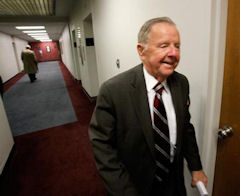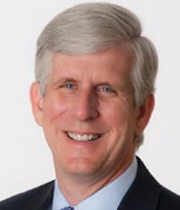
Up, up and away... Outstanding state-supported debt. Source: Debt Capacity Advisory Commitee 2011 report
by James A. Bacon
General Assembly Democrats fought McDonnell administration proposals in the 2012 session to divert funds from the General Fund to transportation programs on the grounds that the transfer would short-change education, health care and other core programs. They don’t appear to be applying the same principle, however, to the issuance of state debt.
A 5% debt service/revenue ratio for state finances (primarily the General Fund plus the transportation fund) is deemed desirable to preserve the state’s coveted AAA bond rating. According to the Debt Capacity Advisory Committee’s December 2011 report, debt service on the Transportation Trust Fund (TTF) already exceeds 5% of TTF revenues. States the report:
To the extent the 5% measure is exceeded, capacity derived from the general fund is being utilized. This does not mean that general fund dollars are needed to supplement debt service payments on TTF debt. However, it does mean that some debt capacity derived from the general fund is being used to keep overall capacity for all tax-supported debt under the target of 5%.
Thus, borrowing more for transportation means borrowing less for schools, higher ed, prisons, parks, government buildings and other capital improvement projects.
Yet, while criticizing McDonnell for raiding General Fund revenues to pay for transportation projects, Senate Dems have pushed furiously for the state to borrow an additional $300 million to help offset the sky-high tolls on the Dulles Toll Road. Toll revenues will be diverted to help pay for construction of Phase 2 of the Rail-to-Dulles project.
With 20 members in the 40-member Senate, Dems forced Senate Republicans to adopt many of their budget priorities, including the $300 million for Rail-to-Dulles. In the budget reconciliation process, however, Republican-dominated Senate and House conferees stripped out the borrowed funds. Then late last week, Sen. Charles J. Colgan, D-Manassas, signed off on the conferee version, holding out the possibility that he might join with Republicans in giving the reconciled budget the Senate’s final approval, but he refused to commit.

Tax-supported debt issued over the past 10 years. Source: Debt Capacity Advisory Committee.
The state debt issue could prove crucial as the parliamentary maneuvering plays out. The Debt Capacity Advisory Committee has maintained since 1991 that the state’s debt service should not exceed 5% of blended revenues. The purpose, as the 2011 reports explains, “is intended to ensure that annual debt service payments do not consume so much of the state’s annual operating budget as to hinder the Commonwealth’s ability to provide core government services.”
In 2010, the Debt Capacity Advisory Committee refined its guidelines to “smooth the effect of dramatic revenue fluctuations, and to facilitate long-term capital planning.” The 5% target measure remained unchanged.
Maintaining a AAA bond rating has been a long-standing bipartisan objective in Virginia. Although the 5% limit is not a formal requirement of municipal bond rating agencies, the debt service/revenue ratio is considered in the rating of the state’s debt. All three bond-rating agencies reaffirmed Virginia’s AAA status in October, but Moody’s gave the commonwealth a “negative” outlook, suggesting that a future downgrade was possible.
In 2011 the General Assembly approved a McDonnell administration plan to accelerate previously authorized transportation bond issues and to issue additional GARVEE bonds, which are backed by future federal transportation funding receipts. Still, thanks to robust increases in tax receipts this year and the lack of other debt issues, the state still has unused debt capacity of roughly $460 million.

Allocation of state long-term debt 2002 to 2011. Source: Debt Capacity Advisory Committee.
It is unclear exactly what kind of debt the Democrats have in mind. Emails Jeff Caldwell, the governor’s press secretary: “We won’t know what type of financing is proposed or the details of these budget proposals until a budget bill passes the GA and is sent to the governor for review.”
Whatever the Democrats are thinking, they have to deal with two issues. First, a practical problem: There aren’t sufficient transportation funds to cover the expected debt service, which means under state code the bonds cannot be issued.
Anne Oman, legislative fiscal analyst for the House Appropriations Committee, explained the problem in an email to Del. James L. LeMunyon, R-Chantilly:
As [the revenue] stream currently stands, there is not room beyond the current fiscal year to continue at the $300.0 million annual issuance level, thus increasing the overall authorization from $3.0 to $3.3 billion as proposed by the Senate would not help projects in the foreseeable future because there is not enough repayment capacity in the [Priority Transportation Fund] revenue stream to support additional issuances at this time.
Then there’s a policy dilemma: While the state can issue another $460 million before hitting the 5% debt service/revenue benchmark, it already exceeds 5% for the transportation component of the budget. The Dems are on the record against under-funding schools, health care and other General Fund programs. Are they willing to under-fund capital spending projects for those very same programs? I can’t help but wonder if they’ve thought it through.

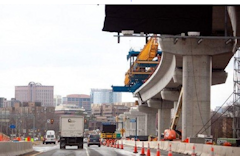





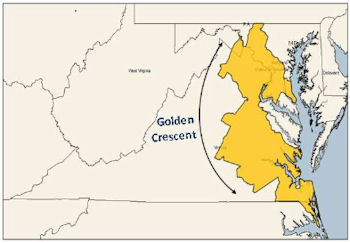




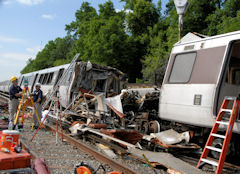 by James A. Bacon
by James A. Bacon